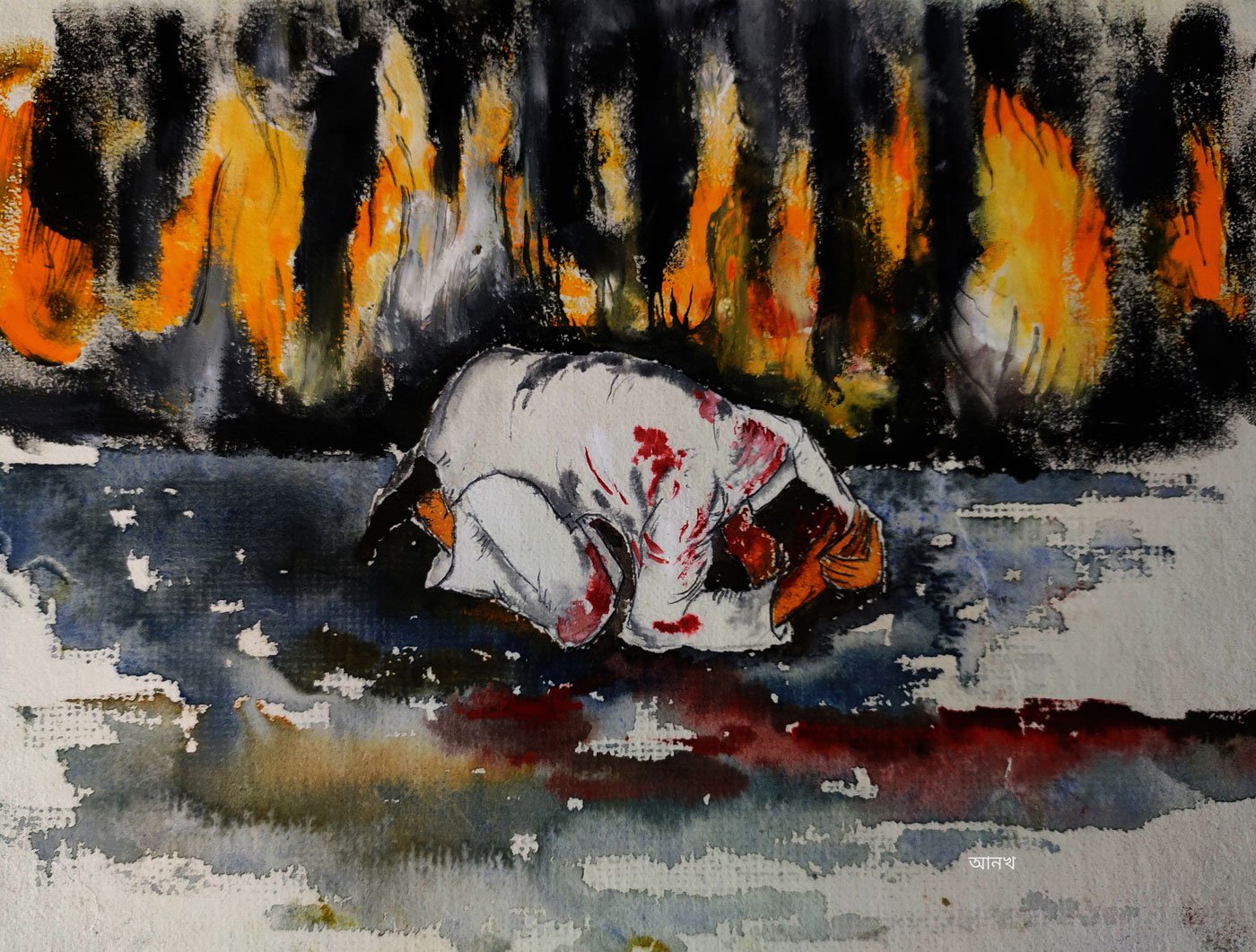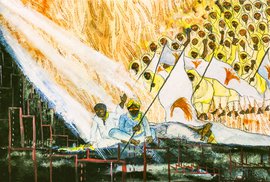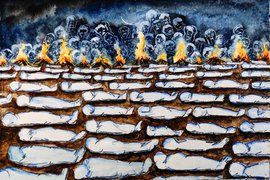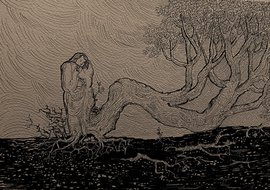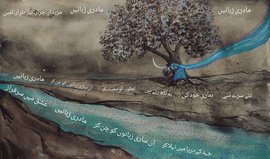His country was more of a dream dreamt by crores of people. There were people who even sacrificed their lives for it. Since the last few years he too had started dreaming. He would see a mob would appear from nowhere and burn a man alive. But he was not able to stop them. This time he saw a desolate house with a crowd in the veranda and a few women crying. Some men stood motionless in front of two dead bodies covered in a shroud. A woman was lying unconscious next to the body. A little girl sat there staring at the dead bodies. He felt guilty for dreaming all this time. He should have stopped long ago. He knew that outside the dream world, the country had already turned into a crematorium. But he did not quite know how to stop dreaming or how to get out of it now.
तो यह देश नहीं…
1.
एक हाथ उठा
एक नारा लगा
एक भीड़ चली
एक आदमी जला
एक क़ौम ने सिर्फ़ सहा
एक देश ने सिर्फ़ देखा
एक कवि ने सिर्फ़ कहा
कविता ने मृत्यु की कामना की
2.
किसी ने कहा,
मरे हुए इंसान की आंखें
उल्टी हो जाती हैं
कि न देख सको उसका वर्तमान
देखो अतीत
किसी ने पूछा,
इंसान देश होता है क्या?
3.
दिन का सूरज एक गली के मुहाने पर डूब गया था
गली में घूमती फिर रही थी रात की परछाई
एक घर था, जिसके दरवाज़ों पर काई जमी थी
नाक बंद करके भी नहीं जाती थी
जलते बालों, नाखूनों और चमड़ी की बू
बच्ची को उसके पड़ोसियों ने बताया था
उसका अब्बा मर गया
उसकी मां बेहोश पड़ी थी
एक गाय बचाई गई थी
दो लोग जलाए गए थे
4.
अगर घरों को रौंदते फिरना
यहां का प्रावधान है
पीटकर मार डालना
यहां का विधान है
और, किसी को ज़िंदा जला देना
अब संविधान है
तो यह देश नहीं
श्मशान है
5.
रात की सुबह न आए तो हमें बोलना था
ज़ुल्म का ज़ोर बढ़ा जाए हमें बोलना था
क़ातिल
जब कपड़ों से पहचान रहा था
किसी का खाना सूंघ रहा था
चादर खींच रहा था
घर नाप रहा था
हमें बोलना था
उस बच्ची की आंखें, जो पत्थर हो गई हैं
कल जब क़ातिल
उन्हें कश्मीर का पत्थर बताएगा
और
फोड़ देगा
तब भी
कोई लिखेगा
हमें बोलना था
This is no country...
1.
A hand was raised,
a slogan shouted,
a crowd marched,
a man was burnt alive.
A community merely suffered.
A country simply watched.
A poet just said,
there dies a poem.
2.
Somebody said,
the eyes of a dead man
turns upside down.
That way one can’t see his present,
stare at the bygones.
Someone asked,
could a man can be the nation?
3.
The sun that day had set at the corner of the lane.
The shadow of the night wandered the streets.
There was a house moss growing on its doors.
One couldn't go past the house,
no, not even if you held your nose,
not without the burning smell
of flesh filling your lungs.
The neighbours told the girl,
her father was dead,
her mother was lying unconscious,
a cow was saved,
and two people were burnt alive.
4.
Here there is a provision
for crushing the houses down
There is a law
that allows lynching
and you can even burn people alive
as per the constitution now.
Who says this is a country?
This is a crematorium.
5.
When the morning didn’t follow the night,
we had to speak.
When the power turned oppressive
we had to speak.
When the killer
was looking for his clothes,
sniffing his food,
pulling the sheet,
measuring the area of his house,
we had to speak.
The little girl
now sits stony eyed.
Tomorrow they will say,
she is hiding Kashmiri stones
in her eyes,
let us explode those.
Even then, perhaps,
someone would say,
oh, we had to speak!
Translated from Hindi by Pratishtha Pandya
